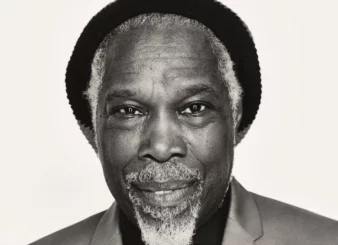In the fast-paced world of job hunting, standing out in an interview can make the difference between landing your dream job and missing out. Recently, I experienced firsthand the critical role that understanding and articulating your “why” plays in making a lasting impression during an interview.
Let me share some context: We were sourcing for a critical role for one of our high-growth clients, and our team managed to bring in two exceptional candidates who both performed brilliantly in their first and second interviews. They were articulate, and knowledgeable, and presented themselves exceptionally well. This left the decision-makers in a dilemma: who should they choose?
Ultimately, the decision hinged on a subtle yet essential aspect of the candidates’ interviews—their “why.” Both candidates were technically proficient and seemed culturally aligned with the company. However, the deciding factor was their ability to express, in detail, their passion for the product, their genuine interest in how the company operates, and their vision for their career trajectory within the organisation.
The Power of Your “Why”
So, what exactly is your “why,” and why is it so powerful? Your “why” is the underlying reason you are drawn to a particular company or role. It’s a combination of your passion for the industry, your alignment with the company’s values and mission, and your vision for how you can grow within the organisation.
When clearly articulated, your “why” demonstrates to employers that you are not just looking for any job; rather, you’re intentional about finding a role you are aligned with and passionate about.
Preparing Your “Why”
Preparing your “why” in advance is crucial. Here are a few tips from the experts on our team who work with hiring managers day in and day out:
Calvin Harris, E-commerce & Digital Manager:
Consider where you want to go in your career (seniority, industry, etc.) and identify your skills gaps. Then, assess the company you’re interviewing with to see how you can bridge those gaps. During the interview, explain how the skills you currently possess can support their business goals while also highlighting how the company can help you develop the skills you lack.
Takeaway: Align your career goals with the company’s needs by demonstrating in the interview how your current skills can support the growth of the company.
Jayna Kalyan, Supply Chain Director:
Take time to prepare ahead of the interview, don’t try and answer it off the cuff. Think about why you want to leave your current role—what is your biggest driver/motivation for leaving? Take that information, research the business/role/values, and make correlations on how it fulfils what’s missing/what you’re looking for in your next move.
Takeaway: Articulate how this role fits into your long-term career goals. Show that you have a vision for your future and see this position as a significant step towards achieving it.
Loren Phillips, Senior Talent Exec, Finance, Sales & Marketing:
The first step to a genuine answer is to apply for jobs aligned with your interests. Let’s be honest, a lot of the time your why is largely about wanting to pay your mortgage or sustain your lifestyle, but that’s not the best answer to give at interview stage. Answering “the why”, becomes easier to answer when you can find things that specifically resonate with you about a role or company.
Takeaway: No matter how tempting it can be, apply for roles that you have a genuine interest in. It goes a long way in answering the question sincerely.
Delivering Your “Why” in an Interview
When it comes to delivering your “why” during an interview, specificity and authenticity are key. Here are some tips:
- Be Specific: General statements like “I love the company’s culture” are not enough. Instead, say something like, “I admire how your company has built a strong culture of innovation and collaboration, as evidenced by your recent project on X.”
- Be Authentic: Your passion should come through naturally. If you’re genuinely excited about the opportunity, it will show in your voice and body language.
- Connect the Dots: Explain how your skills and experiences have prepared you for this role and how you envision growing with the company.





























Recent Comments